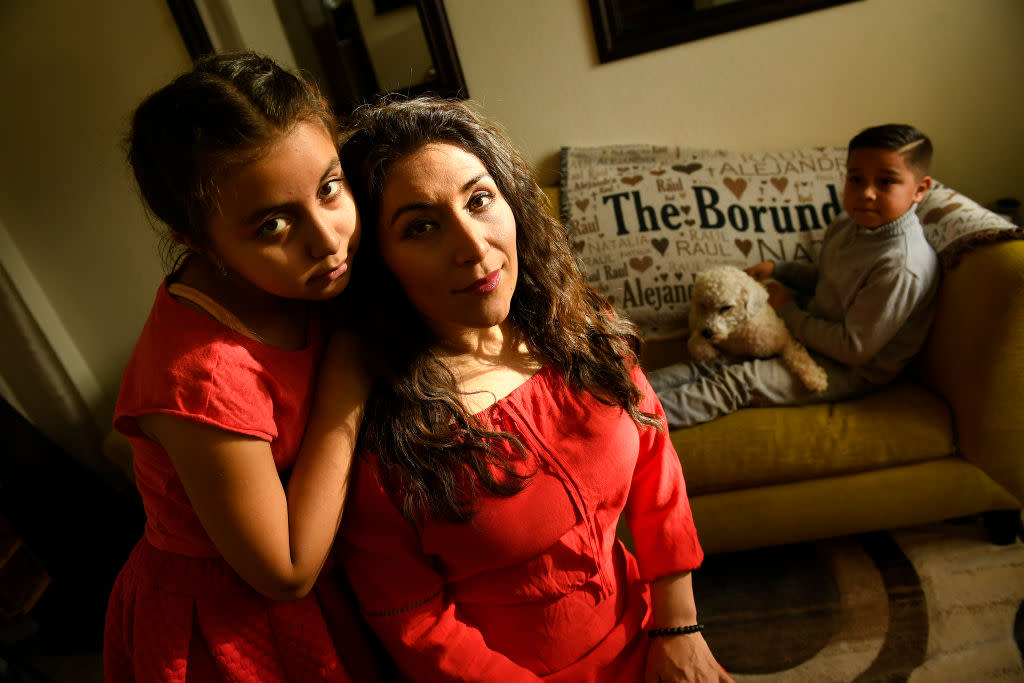For kids in Colorado, health care is in jeopardy

Colorado has become one of the first states to tell its residents to research private insurance plans in the event that the federal government fails to reinstate funding to CHIP, the joint state- and federal-government-funded program that provides health insurance for 9 million children from middle- and low-income families nationwide.
The state’s Department of Health Care Policy and Finance (HCPF) released a statement Nov. 27 announcing that it began sending a letter to families encouraging them to look into new health plans. The letter explains that federal funding for CHIP expired on Sept. 30. Colorado has state funds to cover the program costs only until Jan. 31, 2018. After that, families will have to pay for private plans should the government fail to renew.
Each year, the federal government votes to allocate funds to the program and each state matches that money. To receive funding, both the Senate, and then the president, must sign off on the program budget. The House passed the bill to fund CHIP for the next five years on Nov. 3, but progression stopped short of the Senate. With no pass day in sight, states like Colorado are facing pressure to take action.
“It is critically important for families to start planning for potential changes in their health coverage if the federal government doesn’t renew funding for the CHP+ program,” Gretchen Hammer, Colorado’s Department of Health Care Policy Medicaid Director, said in the press release. “We remain cautiously optimistic Congress will renew federal funding, but we want our families enrolled in CHP+ to be aware that changes may be coming and not be caught off guard should the program come to an end.”
CHIP has brought the U.S.’s rate of uninsured children down to 5 percent — a record low — per the Kaiser Family Foundation. CHIP’s Plus plan in Colorado alone currently insures more than 75,000 kids and nearly 800 pregnant women.
“These are families, they’re not making a whole lot of money,” Marc Williams, Public Information Officer at Colorado Department of Health Care Policy and Financing, tells Yahoo Lifestyle. “They make too much to qualify for Medicaid, but they make enough to qualify for CHIP program, because their employer may not provide health insurance.”
He said the loss of CHIP funding would “add an additional financial burden” on these families.
Joan Alker, executive director of the Center for Children and Families at Georgetown University, agrees. She tells Yahoo Lifestyle that even the smallest lack of coverage in terms of time can have deep effects.
“Even a short period of no coverage is not good for kids’ health and it puts families at risk for financial risk,” she said. “As any parent knows, a kid can break a bone or need stitches any day of the week. If you’re uninsured, even for a short period, [it] can have a devastating effect on a family’s finances.”
Some, including Alker, speculate the CHIP program hasn’t been a priority for lawmakers with the focus on the Affordable Care Act. The bill itself, though traditionally bipartisan, has also caused disagreement among Democrats, who strongly support the program but fear Republicans want to take money from other assistance programs like Medicaid to fund it.
Alker wants them to take action, before it’s too late.
“I’m optimistic Congress will get this done and that terrible outcome can be avoided, but really, it’s very unfortunate we’re having this conversation. This could have been an easy win for congress months ago, yet it’s still not done,” she said.
The U.S. Census Bureau’s American Community Survey (ACS), 44 states have seen improvements in coverage for children since the ACA took effect in 2014, with gains in Nevada, Montana, Florida, Arizona, California, Idaho, and Colorado.
With CHIP’s fate in purgatory, the future of kids’ coverage remains more uncertain. Williams says the state has been in contact with representatives in Congress, but should the government fail to act, the department will send a letter at the end of December, around the holidays, officially announcing the end of CHIP coverage.
“We’re in a holding pattern until Congress decides what it’s going to do,” Williams tells Yahoo Lifestyle. “At the same time, we want to be proactive with our families so they can take measures to inform themselves.”
Alker says she believes there’s a lack of awareness with respect to how much it takes to run programs like these. But just because states have funding until the end of the year doesn’t mean it’s OK to delay the bill.
“There’s a lot more to it than that,” Alker says. “They can’t live on a promise. It’s not a good way to run government, to leave states with this level of uncertainty.”
Read more from Yahoo Lifestyle:
Follow us on Instagram, Facebook, and Twitter for nonstop inspiration delivered fresh to your feed, every day.
